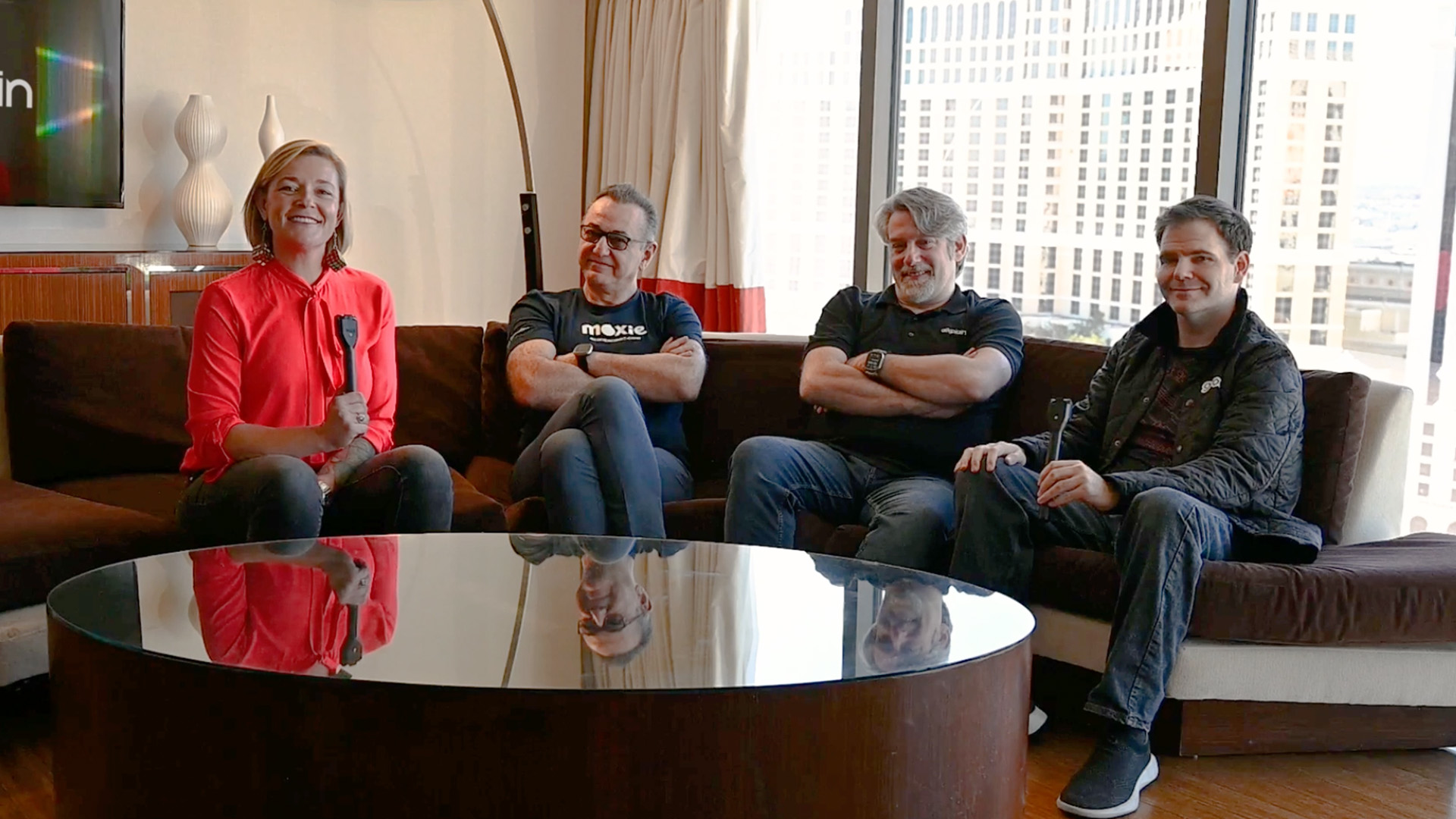 AI
AI
 AI
AI
 AI
AI
There’s no question that artificial intelligence has taken the technology world by storm. But while 2023 may have been the year that the world realized AI was going to be real, 2024 looks poised to be the year it actually becomes real and not just hypothetical.
That was the view expressed by Jonathan Ross (pictured, right), founder and chief executive officer of Groq Inc., during theCUBE’s special coverage of CES 2024. Hassan Sawaf (second from right), founder and CEO of aiXplain Inc., agreed with that prediction.
“In 2023, we had the year of demos and prototypes. Now, it’s time to prove that the demos or prototypes can actually do a thing,” Sawaf said.
Ross, Sawaf and Paolo Pirjanian (second from left), founder and chief executive officer of Embodied Inc., spoke to theCUBE Research industry analyst Savannah Peterson (left). They discussed the importance of speed and engagement in AI while diving into how AI is being implemented in the enterprise and beyond.
When it comes to proving that demos and prototypes are the real deal, speed becomes a critical component, according to Sawaf. Speed enables the prototyping and experimentation phase to be more efficient.
“You can run more experiments and so forth. A person or company can actually do more experimentation, more user experience tests, for example, to figure out what is best,” Sawaf said. “Today, every iteration is still taking quite some time. It’s gotten much easier than, again, 30 years ago or 10 years ago, or even two years ago.”
Still, it’s not where it needs to be, he added. For innovation to occur, it needs to be 10 to 20 times faster.
“What some of our customers are using, they’re not using one agent, one LLM at the same time. They’re using multiple LLMs, negotiating with each other to serve a certain problem,” Sawaf said. “It’s the same if you want to solve a problem, if you want to start a team to solve that problem — it’s a team, five different people, five different capabilities, sitting together, negotiating and discussing.”
With speed in mind, aiXplain now has 43,000 models on the platform and wants to see them all on Groq so that they can iterate much faster with the experimentation of the small and large companies on the platform, according to Sawaf. That sentiment represents the relationship that has formed between Groq, aiXplain and Embodied, according to Ross.
“We’re each representing a different portion of the stack. We make models go fast, we provide compute capacity, aiXplain here provides the quality of the models, the selection of the models. Then with Embodied, it’s more about bringing that magic to the end user, and that experience,” Ross said. “You’re starting to see the maturity of AI now. A year ago, I don’t think any of us would’ve known how to find each other.”
As the field continues to expand, Ross hopes that AI gifts humanity more personalization. For instance, he said he was talking to an education professional recently who said that teachers are worried they will lose their jobs.
“They’re going to get a different job. Their job is, instead of having a lecture or a teaching plan for 30 students, their job is going to be to tailor that for each student,” Ross said. “And they’re going to have the ability to do that because generative AI is going to help them.”
For Embodied, it comes down to being passionate about helping children become their very best. That can help to change the world, according to Pirjanian.
“I know this is a typical headline in Silicon Valley: We are changing the world by way of doing search engines, this and that,” he said. “But this is really changing the world one child at a time, because they can be much more balanced and positive citizens of our shared world and future.”
Millennials are often called digital natives, Peterson noted. But perhaps the upcoming generation could be referred to in a different way: “The generative AI generation,” Ross said.
Here’s theCUBE’s complete video discussion:
Support our mission to keep content open and free by engaging with theCUBE community. Join theCUBE’s Alumni Trust Network, where technology leaders connect, share intelligence and create opportunities.
Founded by tech visionaries John Furrier and Dave Vellante, SiliconANGLE Media has built a dynamic ecosystem of industry-leading digital media brands that reach 15+ million elite tech professionals. Our new proprietary theCUBE AI Video Cloud is breaking ground in audience interaction, leveraging theCUBEai.com neural network to help technology companies make data-driven decisions and stay at the forefront of industry conversations.